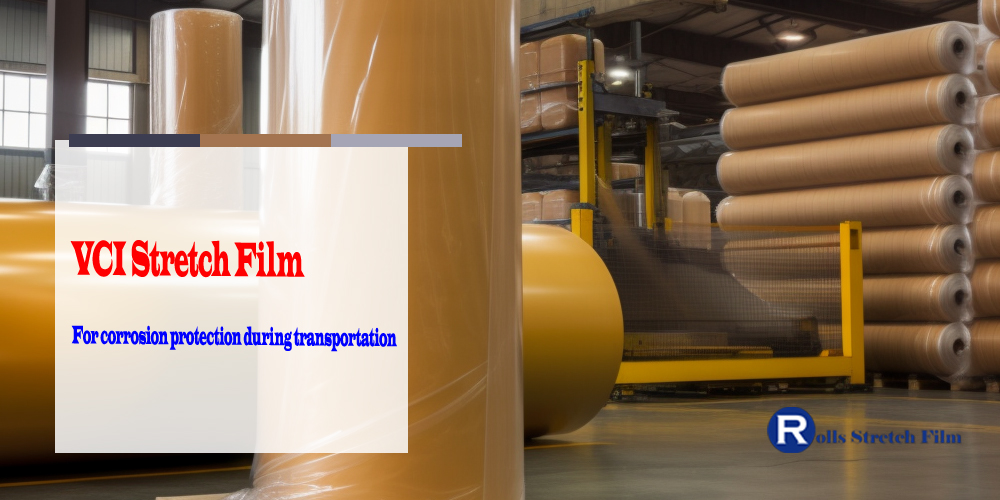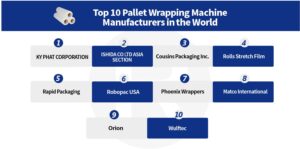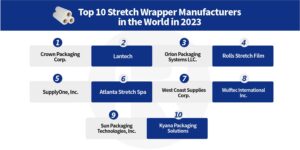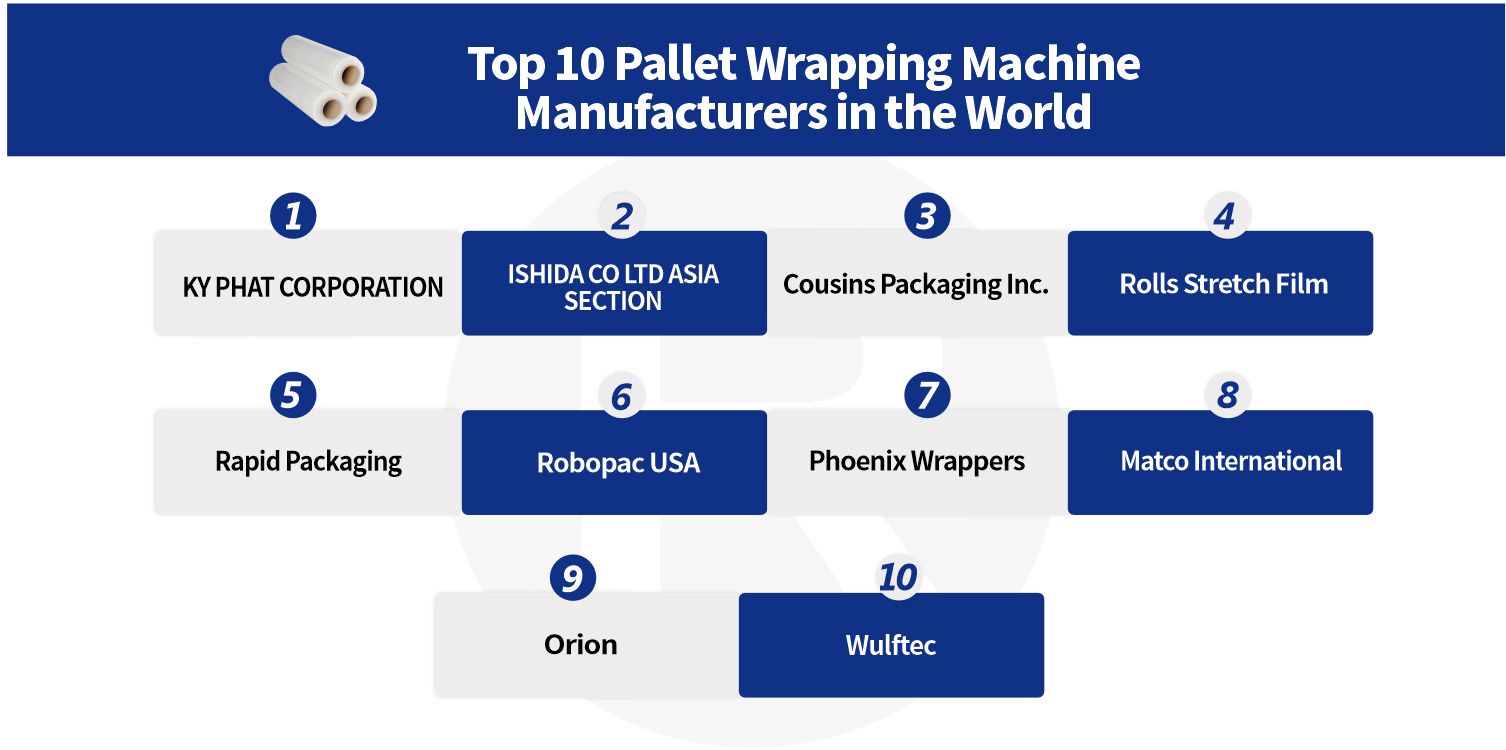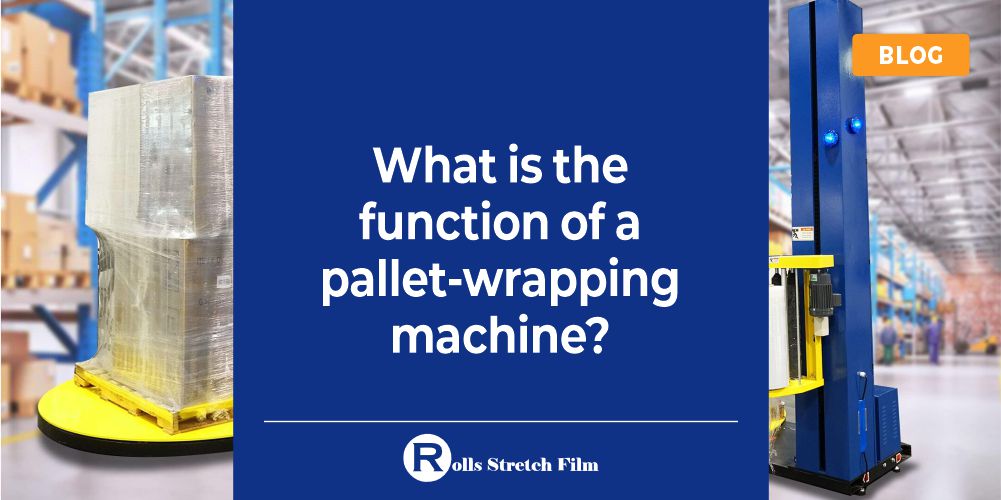VCI (Volatile Corrosion Inhibitor) stretch film is an effective and efficient solution for cost-saving corrosion prevention during the transport of metal parts. This article dives into the application of VCI stretch film for maximum effectiveness, benefits, case studies, and regulatory considerations.
VCI stretch film is a cost-effective solution for corrosion protection during the transportation of metal components. The film’s ability to conform to the shape of the component provides long-lasting protection from corrosive agents. To ensure maximum effectiveness, it is important to follow best practices such as choosing the right thickness and wrapping the metal tightly with the film, as well as adhering to regulatory standards set by environmental agencies such as EPA and DOT. Studies have shown that using VCI stretch film can result in reduced maintenance costs and improved equipment reliability.
For further information on how VCI technology works and its applications in various industries, continue reading this article!
What is VCI stretch film?

VCI stretch film is a type of packaging material that is used to protect metal objects from corrosion. VCI stands for “volatile corrosion inhibitor,” and it refers to a compound that is infused into the film to prevent rust and other forms of corrosion.
The film itself is made from a special blend of resins that allow it to stretch and conform to the shape of the object being packaged. This makes it ideal for use in a variety of different applications, including storing and transporting metal components in the automotive, military, and industrial industries.
One of the key benefits of VCI stretch film is its ability to provide long-lasting protection against corrosion. The VCI compounds in the film create an invisible barrier that inhibits the electrochemical reactions that lead to rust and other forms of metal degradation. This makes VCI stretch film an ideal choice for storing and transporting metal components that are subject to harsh environmental conditions, such as high humidity or saltwater exposure.
Another benefit of VCI stretch film is its flexibility and ease of use. The film can be wrapped around metal components of all shapes and sizes, providing a snug and secure fit that protects against scratches, dents, and other forms of damage during transportation and storage.
VCI stretch film also has a relatively low environmental impact compared to other forms of corrosion protection. The film is recyclable and can be safely disposed of in landfills without causing harm to the environment.
Despite its many benefits, there are some potential drawbacks to using VCI stretch film. For one, it can be more expensive than traditional packaging materials, such as shrink wrap or bubble wrap. Additionally, the effectiveness of the film may be reduced in extreme environmental conditions, such as very high or low temperatures.
| Advantages of VCI stretch film |
|---|
| Innovative vapor corrosion inhibiting technology, can protect various metals |
| High puncture and tear resistance, can be used for hand or machine wrapping |
| Self-adhesive, no need for tape or other fixatives |
| Transparent blue film, easy to identify products |
| Can provide up to 5 years of corrosion protection, reduce maintenance costs and equipment failures |
How VCI Stretch Film Works to Prevent Corrosion
Explanation of VCI Technology:
VCI stands for Volatile Corrosion Inhibitor, which is a class of compounds that are used to prevent corrosion in metals. The VCI technology employs special chemicals which react with the metal surface to create an invisible protective layer that prevents oxidation and other forms of metal degradation. VCI molecules contain vapor molecules that attach to the metal surface, thereby creating a molecular bond with it. This results in a thin protective layer that inhibits any chemical reactions that might cause corrosion on the metal surface.
Mechanisms by which VCI Stretch Film Prevents Corrosion:
VCI stretch film works by releasing VCI molecules that evaporate and attach to the metal surface, forming an invisible protective layer that inhibits corrosion. The VCI molecules attach to the metal surface, creating a molecular bond, which then acts as a barrier to prevent moisture, oxygen, and other corrosive elements from reacting with the surface. As the VCI molecules slowly release over time, the protective layer remains active, preventing corrosion for an extended period. The film’s ability to stretch and conform to the shape of the metal component, wrapping securely around any shape and size, enhances this protection by preventing moisture and contaminants from entering.
Advantages of Using VCI Stretch Film Over Other Corrosion Protection Methods:
| Cost | Compared to other methods such as coatings, VCI stretch film is a cost-effective solution since it requires less labor and processing time. |
| Easy application | VCI stretch film is also easy to apply on metal surfaces of different shapes and sizes, making it an ideal solution for various applications. VCI stretch film creates a non-invasive protective layer that doesn’t alter the metal’s properties or characteristics like coatings, making it an ideal solution to use in many industries, such as the electronics industry, automobile industry, and aerospace industry. |
| Long-lasting protection | VCI stretch film also protects equipment and components for extended periods, providing long-lasting protection, reducing maintenance costs, and preventing equipment failures due to corrosion. |
| Environmentally friendly | Lastly, VCI stretch film is an environmentally friendly solution for corrosion protection as it doesn’t leave residue on the metal surface and is made from recyclable materials. |
Application of VCI Stretch Film for Corrosion Protection During Transport
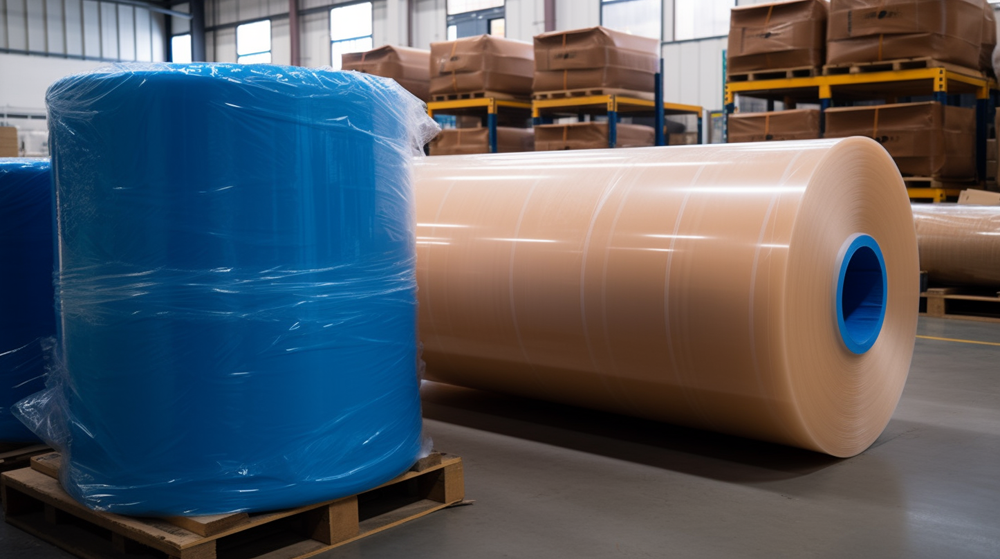
Best Practices for Applying VCI Stretch Film:
- Ensure that the metal surface is clean and free of any contaminants, such as dirt or oil, before wrapping it with the film.
- Choose the right thickness for the VCI stretch film, depending on the type of metal component being protected.
- Wrap the metal component tightly with the VCI stretch film, ensuring that all parts of the component are covered.
- Store the wrapped metal component in a dry and cool place to ensure the maximum effectiveness of the VCI stretch film.
Case Studies and Examples Showcasing the Benefits of VCI Stretch Film:
Several industries use VCI stretch film for corrosion protection during transportation. One example is the automotive industry, where VCI stretch film is used to protect automotive parts during shipment and storage. VCI stretch film has also been used for corrosion protection during the transportation and storage of military equipment and aircraft parts in the aerospace industry.
In one case study, it was found that the use of VCI stretch film resulted in a 25 percent reduction in corrosion-related maintenance costs in the military industry. In another study, VCI stretch film was tested on naval equipment and found to provide effective corrosion protection even after six months of continuous exposure to a salt spray environment.
Regulatory Considerations Related to Using VCI Stretch Film:
When using VCI stretch film for corrosion protection during transportation, it is essential to ensure that the film meets regulatory standards. In the United States, the Environmental Protection Agency (EPA) regulates the use of VCI technology, including VCI stretch film, to ensure that it does not harm the environment or human health.
Also, it is essential to follow regulations related to transportation, especially for hazardous materials. For example, the Department of Transportation (DOT) has regulations for the transportation of hazardous materials. Therefore, if VCI stretch film is used for the transportation of hazardous materials, then it must comply with DOT regulations.
Highlighting the benefits of VCI stretch film for effective and efficient corrosion prevention.
VCI stretch film is a cost-effective and efficient solution for corrosion prevention during transportation. Its ability to conform to the shape of metal components, as well as its long-lasting protection make it an ideal choice for a variety of applications, such as the automotive and aerospace industries. Case studies have shown that VCI stretch film provides effective corrosion protection and prevents equipment failure, reducing maintenance costs. Additionally, regulations must be followed to ensure that VCI technology is safe and compliant with environmental standards.
Future trends in VCI stretch film technology for corrosion prevention
Looking ahead, the growth in the demand for VCI stretch film technology is expected to continue due to its versatility and effectiveness in preventing corrosion in various industries. Newer technologies are being developed which will further improve the performance of VCI stretch films by increasing their durability and protection capabilities. With these advances, VCI stretch films will continue to help preserve metals from corrosion damage while providing safe transportation solutions.
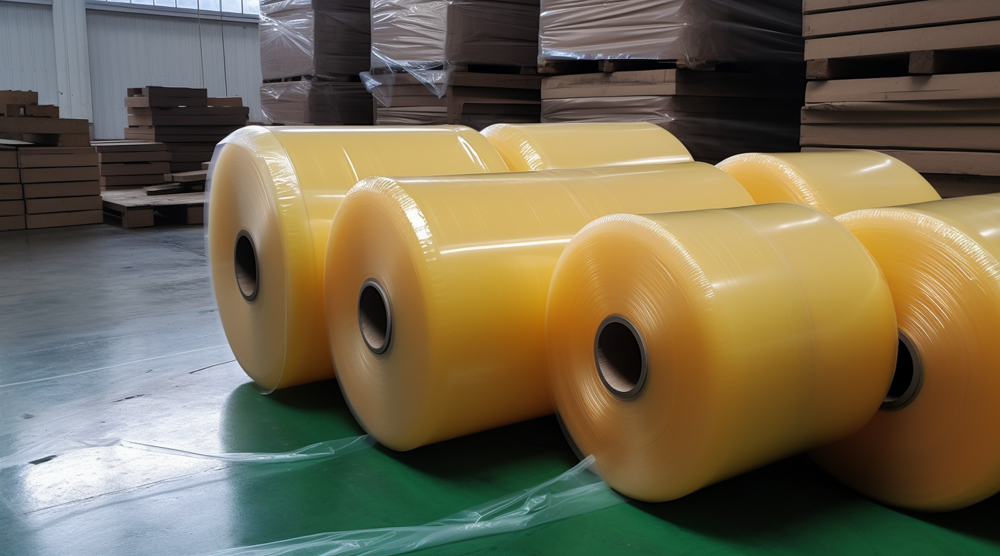
Whether you are looking for cost-saving solutions or improved equipment reliability, investing in VCI stretch films can offer several advantages including ease of use, long-lasting protection, and regulatory compliance. By taking time to understand best practices and regulations related to VCI technologies, you can maximize their potential for corrosion protection during transport.

